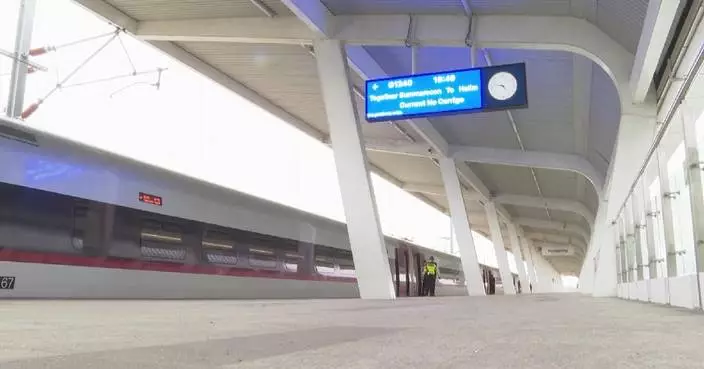China's rural e-commerce logistics index rose to a five-year-high in October, growing 2.8 points from the previous month to 132.2, according to data released Monday by the China Federation of Logistics and Purchasing (CFLP).
Steadily improved logistics infrastructure in the rural parts of the country has greatly boosted e-commerce in the countryside, enabling farmers to sell their seasonal products to consumers around the country.
Farmer Sun Dayong in central China's Henan Province is making a good profit selling local agricultural products via livestream e-commerce. His success is closely linked to Henan's efficient three-tier rural logistics network, which sets up a logistics service spot in every village, connected by township-level logistics stations and then county-level logistics hubs. A tiered pricing system for shipping is also introduced, offering discounted fees based on order volume. These conveniences have prompted Sun to establish his own e-commerce company right inside his village. He is also helping neighbors to get into the business of selling products from their farms online.
"We now have more than 150 people engaging in this. I taught them how to shoot videos on Douyin (Chinese livestreaming/short video platform). They all have their own accounts now and are capable of selling their products on this platform," Sun said.
Data shows that all regions across the country have moved up on the logistics index, a sign of emerging "new farmers" like Sun becoming a nationwide phenomenon, driving rural e-commerce forward.
"As e-commerce continues to grow and rural logistics infrastructure improves, the logistics demand in rural areas is increasing, especially in the two-way flow of agricultural products and industrial goods. Rural e-commerce logistics has become a new engine driving urban-rural consumption," said Li Guo, director of the Department of Management Science and Logistics at Beijing Institute of Technology's School of Management and Economics.

China's rural e-commerce logistics index hits five-year-high in October










